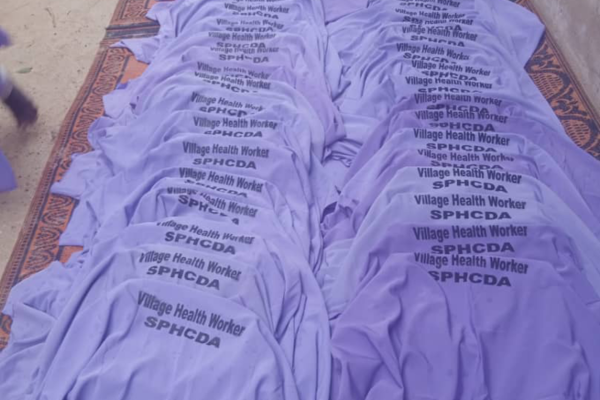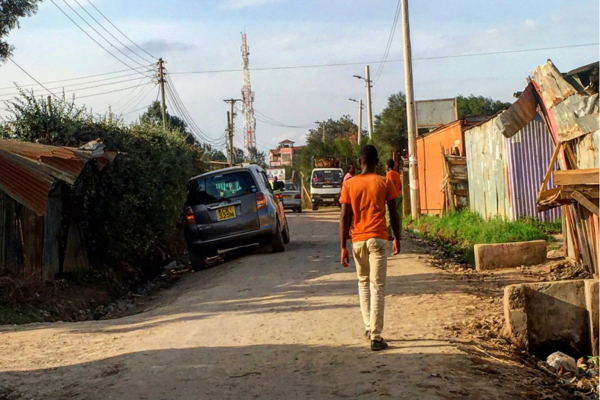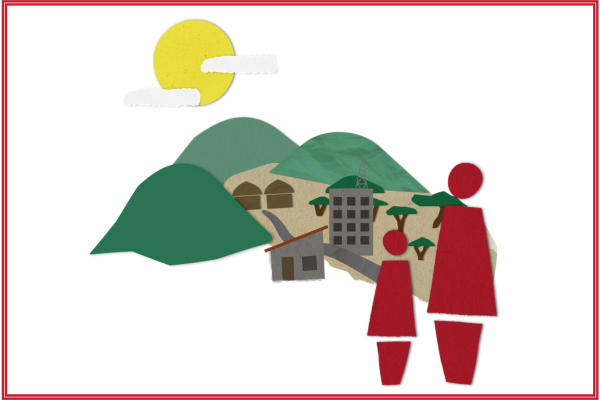It’s been an incredible year of research and advocacy at the Women’s Refugee Commission (WRC). As 2023 comes to a close, we’re featuring four pieces of research we published this year as we worked, side by side with partners, to promote the rights and protections of displaced women, children, and youth. We hope this collection will help you learn more about our work to create a better world for refugees.
1. Opportunities for Welcome: Lessons Learned for Supporting People Seeking Asylum in Chicago, Denver, New York City, and Portland, Maine

WRC’s Migrant Rights and Justice (MRJ) team spent summer 2023 visiting four US cities to identify key best practices and challenges in welcoming and supporting people seeking asylum in US communities away from the US-Mexico border. After interviewing dozens of stakeholders from government officials to those serving people seeking asylum to see what’s working and what challenges exist in Chicago, Denver, New York City, and Portland, Maine, the WRC team found that real opportunities exist to transform how we welcome people seeking protection in the US.
In the report, WRC outlines recommendations to local and state governments, relevant federal government agencies and actors, and philanthropic institutions on actions that these various bodies can and should take to improve the reception of people seeking asylum in the US.
2. Localizing Humanitarian Aid: Learning from a Consortium-Based Approach to Designing and Implementing a Village Health Worker Program in Borno State, Nigeria

WRC partnered with the government of Borno State, Nigeria, and other local partners over a four-year period to design and implement an integrated package of community and primary health interventions to strengthen delivery of reproductive, maternal, newborn, child, and adolescent health and nutrition services. To implement the project, the project team intentionally designed a collaborative localized approach to support sustainability of quality health service delivery in the long term.
This brief is a summary and evaluation of findings on the localized consortium-based approach, including successes, challenges, and recommendations. This is based on an external evaluation and WRC’s internal reflections and learning.
Photo credit: Bintu Bukar Imam
3. Strengthening Sexual Violence Approaches for Diverse Adolescent Boys and Male Youth Affected by Crisis
 A WRC senior researcher developed this snapshot on the work of WRC and its partners on sexual violence against displaced adolescent boys and male youth, including LGBTQI+ youth. All refugees face the risk of sexual violence. For some survivors in humanitarian settings, services sensitive to their unique needs are limited.
A WRC senior researcher developed this snapshot on the work of WRC and its partners on sexual violence against displaced adolescent boys and male youth, including LGBTQI+ youth. All refugees face the risk of sexual violence. For some survivors in humanitarian settings, services sensitive to their unique needs are limited.
This snapshot includes research findings and implications for humanitarian practitioners and policymakers. It also highlights expected outcomes for WRC’s efforts as the organization works to strengthen humanitarian practitioners’ capacity to prevent and respond to sexual violence for ALL survivors.
4. A Feminist Vision for Ending Child Marriage in East Africa Road Map 2023-2027
 Child marriage is rooted in deeply entrenched gender inequality. It affects as many as one in five girls globally, with evidence suggesting it tends to increase in conflicts and displacement. WRC joined King’s College London and Rozaria Memorial Trust in developing a five-year road map to end child marriage. The road map proposes using a feminist lens in efforts to promote gender equality in humanitarian action through the strengthening of partnerships with local civil society organizations, particularly feminist, women-led, and/or women’s rights organizations.
Child marriage is rooted in deeply entrenched gender inequality. It affects as many as one in five girls globally, with evidence suggesting it tends to increase in conflicts and displacement. WRC joined King’s College London and Rozaria Memorial Trust in developing a five-year road map to end child marriage. The road map proposes using a feminist lens in efforts to promote gender equality in humanitarian action through the strengthening of partnerships with local civil society organizations, particularly feminist, women-led, and/or women’s rights organizations.
Child marriage must be addressed across all phases of humanitarian action, supporting place-based actors during preparedness and longer-term recovery, both of which are often overlooked. Through this road map, the goal is to drive change and foster accountability for a new feminist vision and to end child marriage in Eastern Africa.
Through working with local women-led organizations, we learned that the drivers of child marriage differ by context and community and that understanding those drivers was key to developing the tailored solutions outlined in the road map.
If you enjoyed WRC’s research on these areas of our work, view our entire Research and Resource Library to learn more about what we do. The library contains a collection of groundbreaking reports, field manuals, and other tools to help the humanitarian community improve programs that affect the lives of internally displaced and refugee women, children, and youth. We encourage you to browse our library.

